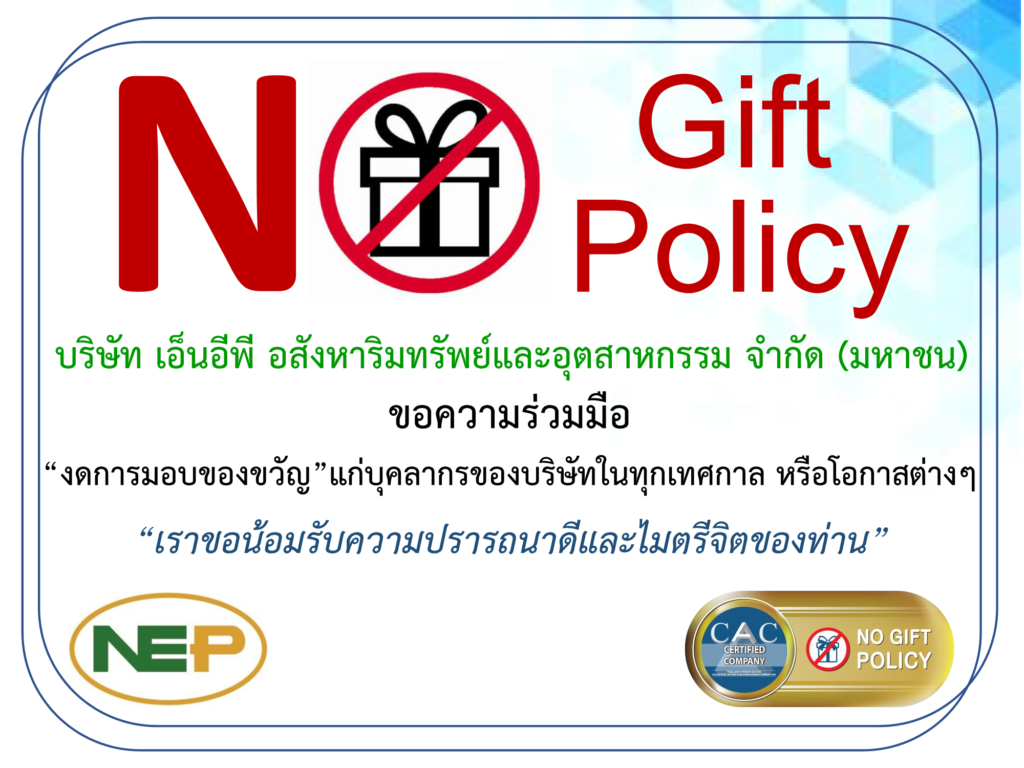human rights policy
NEP Realty and Industry Public Company Limited,
including its entire value chain—comprising employees, shareholders, investors, customers, communities, society, business partners, competitors, and all relevant stakeholders—is committed to upholding human rights and the right to access natural resources and the environment as a core principle of business operations. The company ensures its operations are conducted with prudence and responsibility, refraining from any actions that may directly or indirectly violate or impact human rights, and avoiding any support or involvement in such violations. The policy is guided by the following principles:
1. Respect for Human Rights
The company and its value chain must comply with national laws relating to human rights as well as international human rights standards, including the Universal Declaration of Human Rights (UDHR), the United Nations Global Compact (UNGC), the UN Guiding Principles on Business and Human Rights (UNGPs), and the ILO Declaration on Fundamental Principles and Rights at Work. The company is committed to eliminating forced labor, human trafficking, and child labor. It also upholds the rights to collective bargaining, freedom of association, equal pay for all employees, and a safe and supportive working environment.
2. Non-Discrimination and Prevention of Harassment
The company and its value chain must strictly prevent and oppose sexual harassment and all forms of abuse, as well as any discrimination based on race, origin, religion, belief, gender, color, language, social status, or any other differences. Employees will receive training on non-discrimination and workplace harassment to raise awareness and understanding of prevention and response measures.
3. Human Rights Due Diligence (HRDD)
The company implements a comprehensive risk assessment and human rights impact evaluation across its operations and value chain. This process systematically identifies, assesses, and mitigates risks and impacts related to vulnerable groups, such as children, persons with disabilities, women, indigenous peoples, migrant workers, external contractors, and local communities. Responsible departments are tasked with overseeing, monitoring, and managing these risks as part of their roles.
4. Support and Promotion of Human Rights
The company and its value chain actively support and promote all aspects of human rights across all stakeholder groups, adhering to the company’s Human Rights Policy.
5. Communication and Education on Human Rights
The company and its value chain communicate, disseminate, and provide education on human rights to all stakeholders. This includes encouraging business partners to operate in ways that respect and comply with human rights principles.
6. Commitment to Human Rights
The company and its value chain are committed to respecting human rights and must not ignore or overlook any human rights violations. Any suspected violations must be reported to supervisors or through designated whistleblowing channels.
All directors, executives, employees, and stakeholders within the company and its value chain are required to acknowledge, understand, and strictly comply with this Human Rights Policy.


